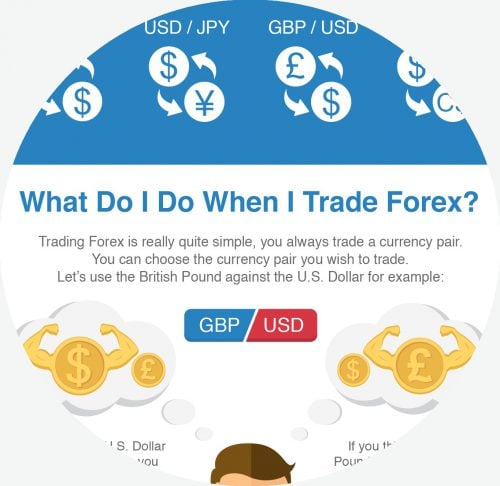If you’ve ever wondered what fuels the world’s economies or debated the factors that determine the relative value of currencies, then the term “forex” is no stranger to you. Forex, an abbreviation that has become synonymous with the foreign exchange market, has a profound impact on our daily lives and financial landscapes.

Image: cmhunited.com
In its essence, forex is the decentralized, global over-the-counter (OTC) market where currencies are traded. It’s a platform where individuals, corporations, and even central banks exchange their currencies to facilitate international trade, investments, and other financial transactions. The magnitude of the forex market is truly staggering, with an estimated daily trading volume exceeding $6 trillion – eclipsing the combined turnover of all stock markets worldwide.
A Historical Snapshot: The Evolution of Forex
The forex market, like the ever-changing tapestry of global economics, has undergone a significant transformation over time. Its origins can be traced back to the era of the gold standard, when currencies were pegged to the value of gold.
However, the post-World War II era ushered in a new era, marked by the Bretton Woods Agreement. This accord established fixed exchange rates against the US dollar, which became the world’s reserve currency. Yet, in 1971, the United States abandoned the gold standard, allowing currencies to fluctuate freely against each other. This pivotal event marked the birth of the modern forex market as we know it today.
Forex Trading: A Lucrative Maze of Opportunities
The forex market, with its high liquidity and volatility, presents a compelling arena for traders seeking to capitalize on currency fluctuations. Unlike other financial markets, forex trading is not confined to centralized exchanges. Instead, it operates 24 hours a day, five days a week, across a vast network of banks, brokers, and other financial institutions.
The allure of forex trading lies in its accessibility to both retail and institutional traders. Traders can speculate on currency movements using a variety of financial instruments, including spot trading, futures, and options. With the advent of online trading platforms, retail traders have gained unprecedented access to the forex market, further fueling its growth.
Key Players: Lifting the Veil on Forex Participants
The forex market is a diverse ecosystem teeming with a myriad of participants, each playing a distinct role. Central banks, the guardians of national monetary policies, intervene in the forex market to influence exchange rates and curb volatility.
Commercial banks, the backbone of international trade, facilitate currency conversions and provide liquidity to the market. Hedge funds and investment banks, with their sophisticated trading strategies and vast resources, are major players in the forex arena. And adding to this dynamic mix are retail traders, who bring a unique perspective and agility to the market.

Image: www.forex.academy
Real-World Impact: The Rippling Effects of Forex
The forex market’s influence extends far beyond the trading floors and financial institutions. It infiltrates our everyday lives, shaping the prices of imported goods, determining the value of our investments, and influencing the cost of our travels abroad.
A stronger domestic currency, for instance, can make imports cheaper while reducing the purchasing power of citizens when traveling overseas. Conversely, a weaker currency can boost exports but increase the cost of imported goods.
What Does Forex Stand For
Forex and You: Harnessing the Power of Currency Exchange
Whether you’re planning an international vacation, expanding your business overseas, or simply seeking to protect your investments from currency fluctuations, the forex market plays a pivotal role. Understanding the intricacies of forex can empower you to make informed financial decisions and capitalize on global economic trends.
Remember, the forex market is an ever-evolving landscape, influenced by a complex interplay of economic, political, and social factors. Stay informed about global events, monitor economic data, and seek guidance from reputable sources to navigate the intricacies of forex and unlock its potential.






